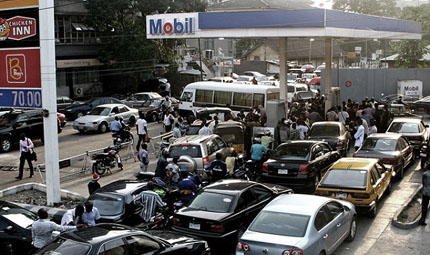Refueling queues have resurfaced across Lagos following the hike in petrol prices by the Nigerian National Oil Company.(NNPC) and other marketers.
The News Agency of Nigeria reports that many petrol stations, including those along Ikorodu Road, Ikeja and Bariga, have been temporarily closed due to price hike.
A NAN correspondent who was monitoring the situation reported that the pump price at NNPCL station has increased to N998 per litre, while other market traders are charging even higher prices.
It is currently being sold for 1,000 Naira at petrol stations in the North West, 1,100 Naira at Hayden Petroleum and 1,050 Naira at NIPCO.
This is the third price hike in two months, following the start of purchasing gasoline from the Dangote refinery on the outskirts of Lagos.
NNPC Ltd. has increased the price of petrol in Lagos from N855 to N998 per litre, while in the North-East states the price reached N1,003.
On September 3, fuel prices rose from a then low of 568 Naira in Lagos to a low of 855 Naira from 617 Naira in other areas.
Energy lawyer Dr Ayodele Oni suggested that the government could foster competition by facilitating the establishment of modular refineries and retrofitting existing national facilities.
Oni, who is also a partner at Bloomfield Law Practice, said increased competition among refiners could lead to higher prices for consumers.
To stabilize exchange rate fluctuations, Oni recommended that the government partially defend the naira with foreign currency in the short term.
He called for policies that promote exports and foreign direct investment to increase dollar inflows in the long term.
Mr. Oni also advised diversifying the economy into manufacturing and agriculture to reduce import costs.
He suggested considering alternative fuel sources such as compressed natural gas (CNG) and suggested that people take advantage of government incentives for converting to CNG vehicles.
Mr. Oni therefore called on the government to introduce a mass transit system to reduce the impact of fuel price fluctuations on the people.
He said Nigeria currently operates under a deregulated regime and prices are influenced by market forces, including exchange rates.
He attributed the recent price increase primarily to the appreciation of the dollar exchange rate against the naira, as the oil sector operates in a dollarized market.
He expressed hope that the crude oil-to-naira agreement between NNPC and Dangote Refinery would help stabilize the naira against the dollar and ease price pressure.

